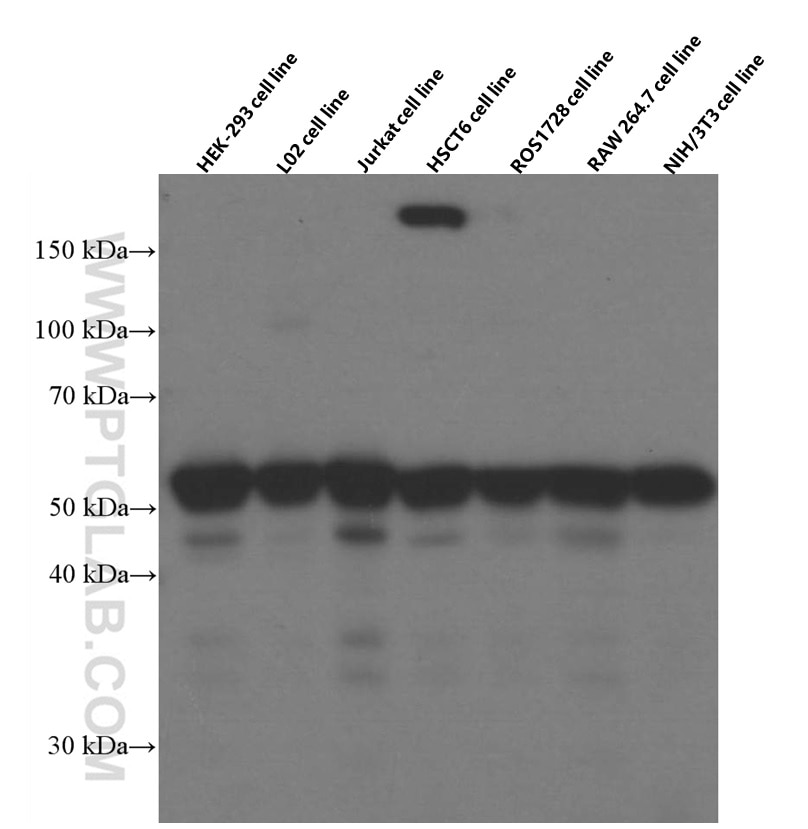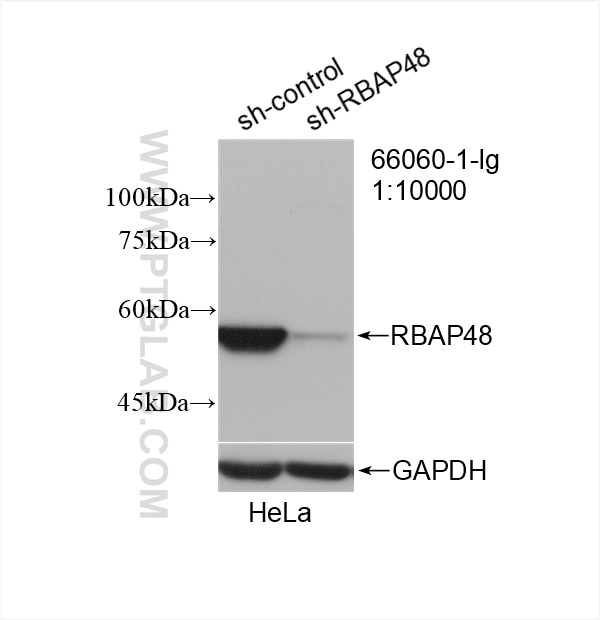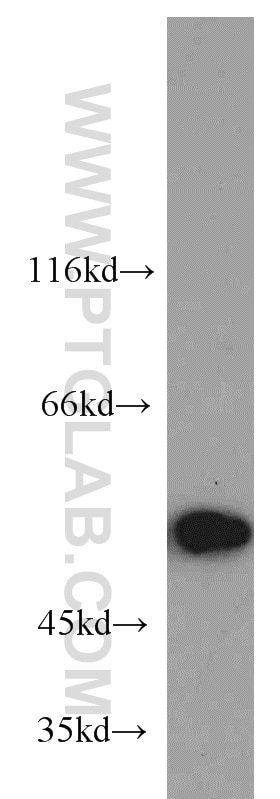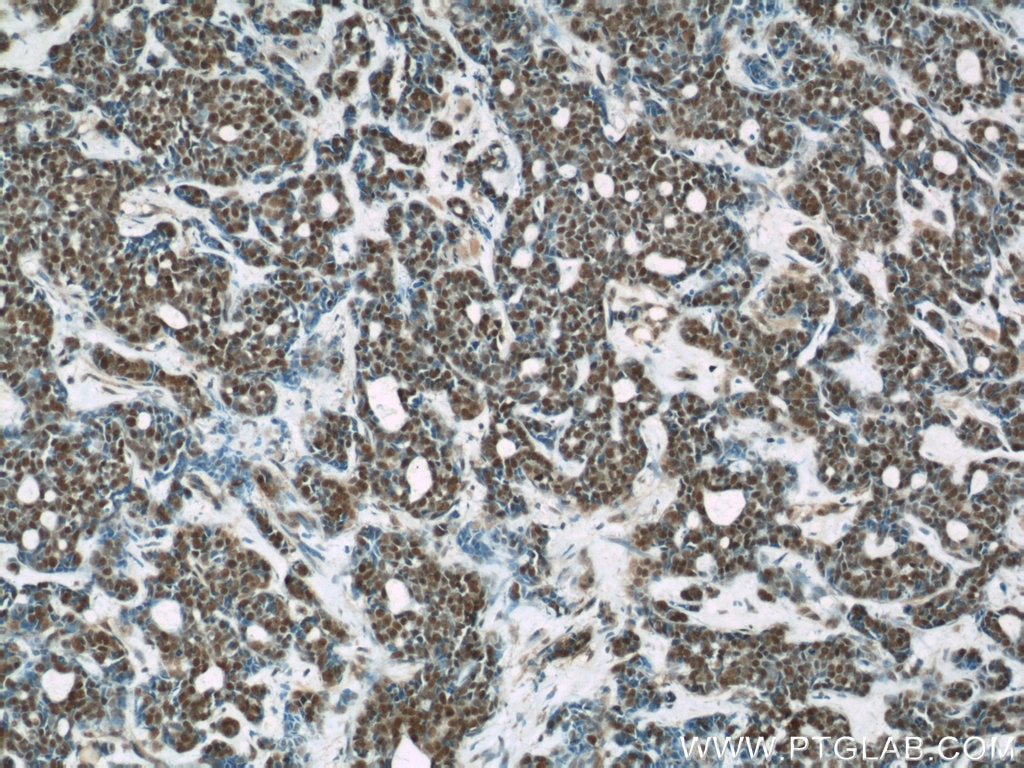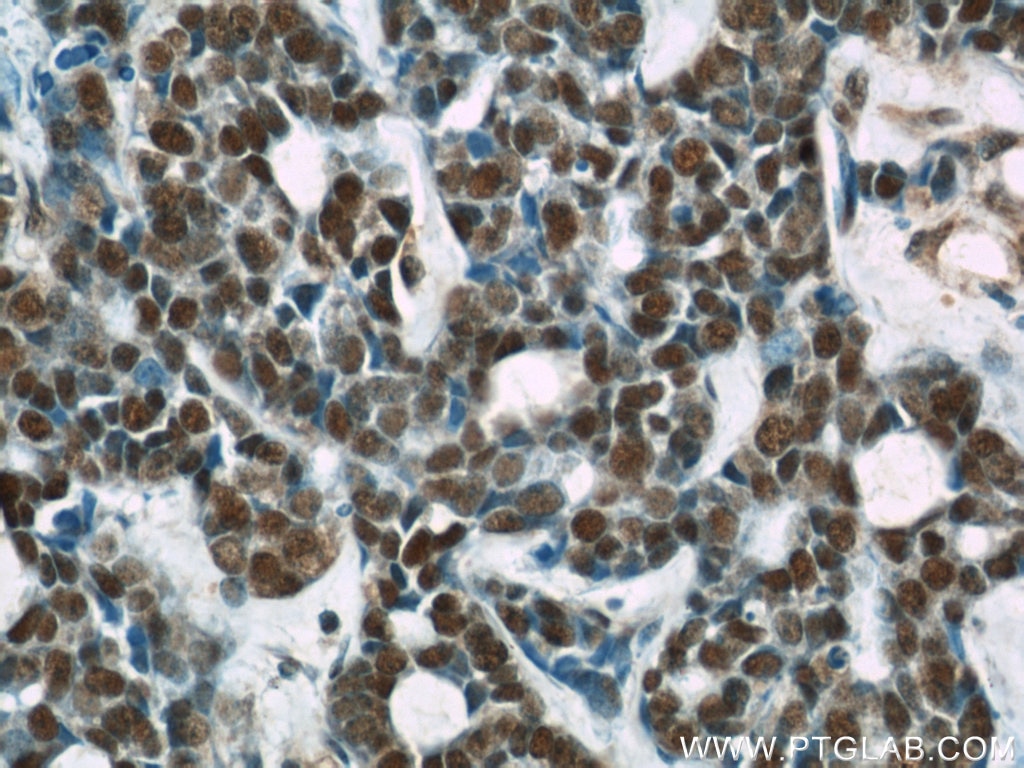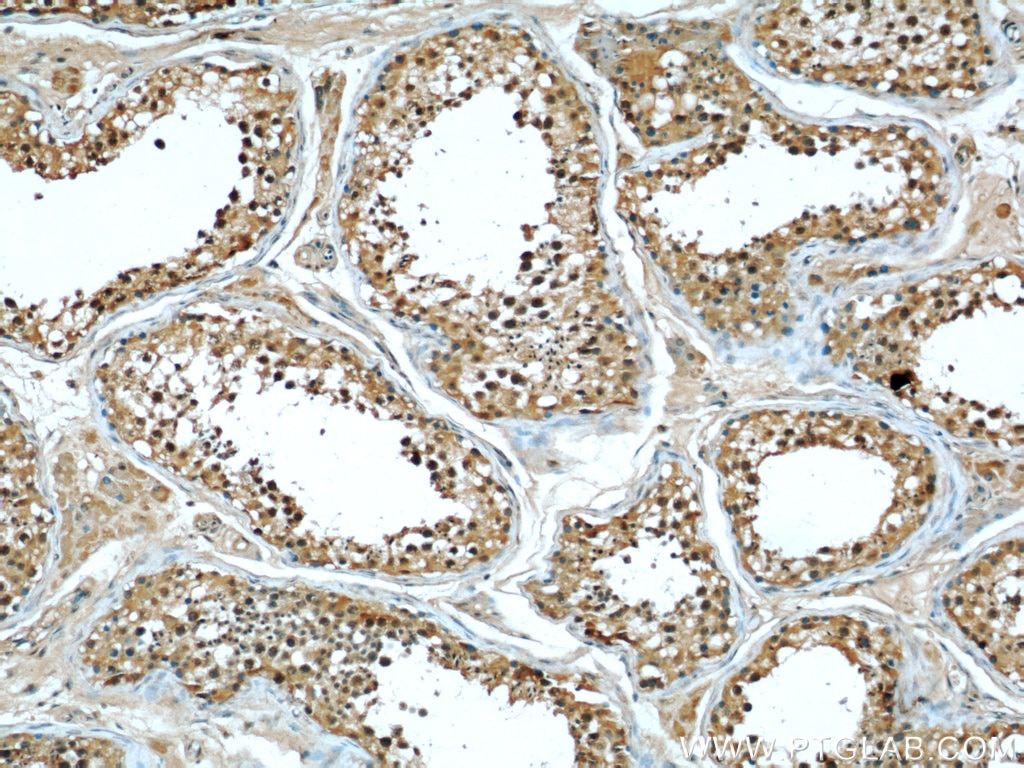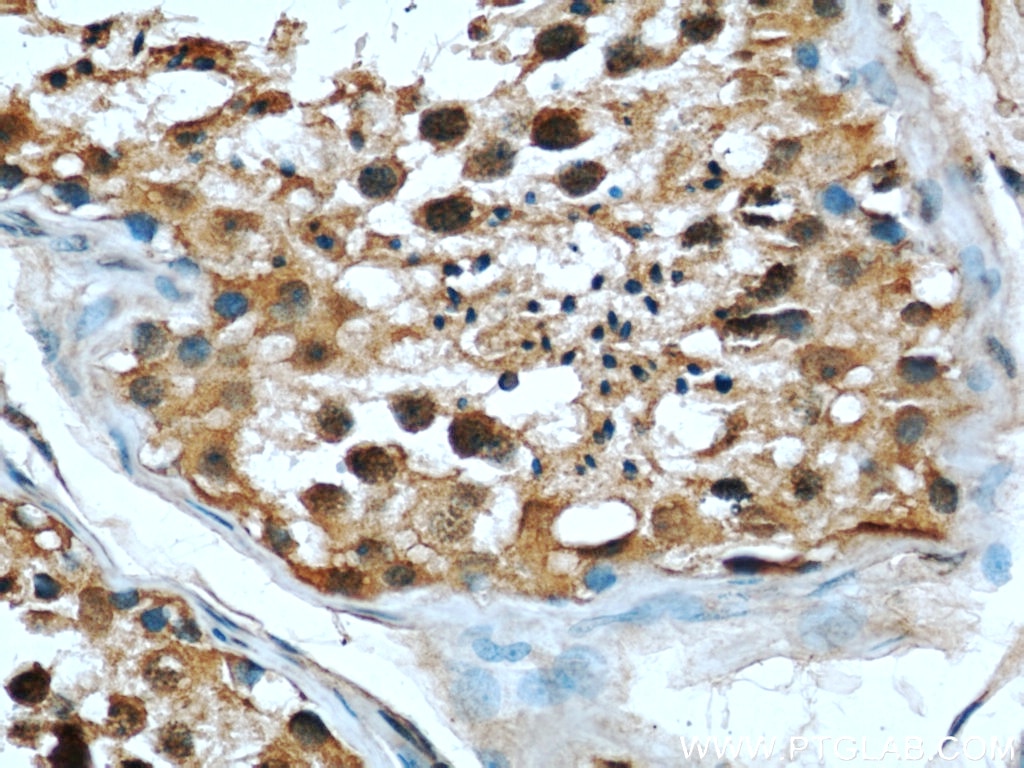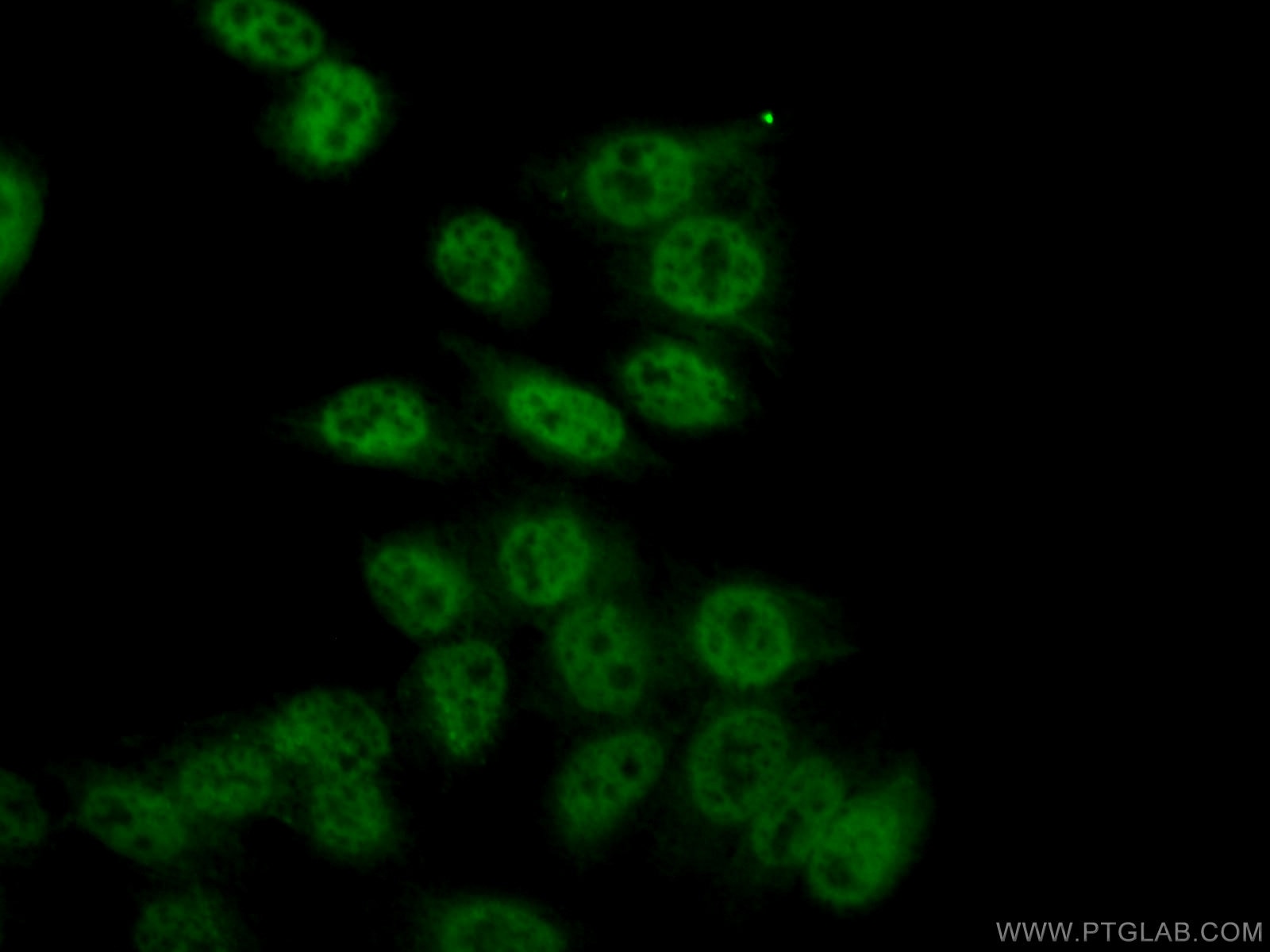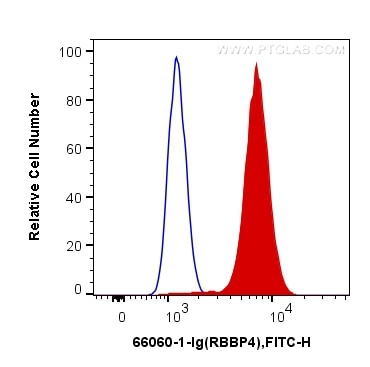- Phare
- Validé par KD/KO
Anticorps Monoclonal anti-RBAP48
RBAP48 Monoclonal Antibody for WB, IHC, IF/ICC, FC (Intra), Indirect ELISA
Hôte / Isotype
Mouse / IgG2b
Réactivité testée
Humain, rat, souris
Applications
WB, IHC, IF/ICC, FC (Intra), Indirect ELISA
Conjugaison
Non conjugué
CloneNo.
5C4D6
N° de cat : 66060-1-PBS
Synonymes
Galerie de données de validation
Informations sur le produit
66060-1-PBS cible RBAP48 dans les applications de WB, IHC, IF/ICC, FC (Intra), Indirect ELISA et montre une réactivité avec des échantillons Humain, rat, souris
| Réactivité | Humain, rat, souris |
| Hôte / Isotype | Mouse / IgG2b |
| Clonalité | Monoclonal |
| Type | Anticorps |
| Immunogène | RBAP48 Protéine recombinante Ag6196 |
| Nom complet | retinoblastoma binding protein 4 |
| Masse moléculaire calculée | 48 kDa |
| Poids moléculaire observé | 53 kDa |
| Numéro d’acquisition GenBank | BC053904 |
| Symbole du gène | RBBP4 |
| Identification du gène (NCBI) | 5928 |
| Conjugaison | Non conjugué |
| Forme | Liquide |
| Méthode de purification | Purification par protéine A |
| Tampon de stockage | PBS only |
| Conditions de stockage | Store at -80°C. 20ul contiennent 0,1% de BSA. |
Informations générales
Histone-binding protein RBBP4 (also known as RbAp48, or NURF55) is a protein that in humans is encoded by the RBBP4 gene. This gene encodes a ubiquitously expressed nuclear protein that belongs to a highly conserved subfamily of WD-repeat proteins. It is present in protein complexes involved in histone acetylation and chromatin assembly. It is part of the Mi-2/NuRD complex complex that has been implicated in chromatin remodeling and transcriptional repression associated with histone deacetylation. This encoded protein is also part of corepressor complexes, which is an integral component of transcriptional silencing. It is found among several cellular proteins that bind directly to retinoblastoma protein to regulate cell proliferation. A decrease of RbAp48 in the dentate gyrus (DG) of the hippocampus in the brain is suspected to be a main cause of memory loss in normal aging (PMID: 23986399).
